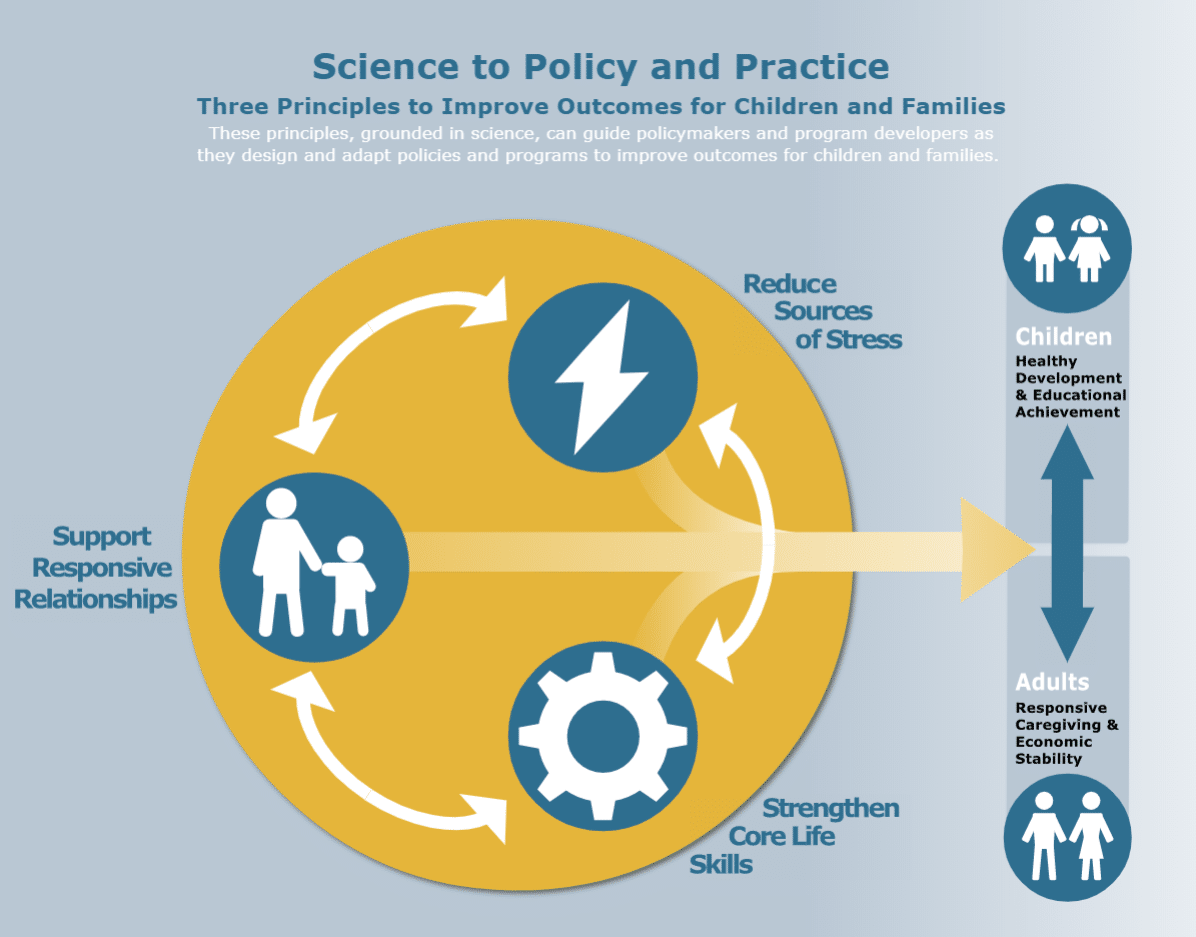Using Science to Guide Early Childhood Policy and Practice
April 20, 2018
by

The following blog post is the fourth in our series celebrating the Week of the Young Child (#WOYC18).
***
Over the past decade there’s been an explosion of scientific knowledge about child development and the effects of early adversity. Here at CSSP, we’ve been especially interested in how this new knowledge helps to build upon the protective factors framework that we first developed for the Strengthening Families initiative, and later adapted to inform work with adolescents and young adults through Youth Thrive.
 The challenge, of course, is to apply the science to what we do every day. We’re excited to see a new tool that helps both policymakers and practitioners understand the practical implications of the science for their work. The Center on the Developing Child at Harvard has issued “Science to Policy and Practice: 3 Principles to Improve Outcomes for Children and Families,” available here. It extracts the following three core ideas that can drive action across a wide variety of fields, and provides examples of how those principles can be applied:
The challenge, of course, is to apply the science to what we do every day. We’re excited to see a new tool that helps both policymakers and practitioners understand the practical implications of the science for their work. The Center on the Developing Child at Harvard has issued “Science to Policy and Practice: 3 Principles to Improve Outcomes for Children and Families,” available here. It extracts the following three core ideas that can drive action across a wide variety of fields, and provides examples of how those principles can be applied:
- Support responsive relationships. That means, for example, helping parents and caregivers engage in “serve and return” interaction with children. It also means focusing on the relationships between workers in service programs and their clients, and helping parents build strong support networks of people they can count on for help.
- Strengthen core life skills that scientists describe as executive function and self-regulation – for example, the capacity to make a plan and stick to it, and to manage competing demands for attention.
- Reduce sources of stress, since a heavy and persistent load of stress can interfere with healthy development and can make it so much harder for adults to take good care of children.
These principles offer a new lens for re-examining the policies, services and supports families need for children to develop well. For example, they provide compelling reasons to eliminate the “benefit cliff” that families can face when small increases in income leave them ineligible for income support, health care or child care benefits. Policies that minimize this disruption, and practices that make eligibility and recertification decisions as simple and straightforward as possible, help both to reduce the amount of stress on parents and to maintain continuity in the supportive relationships children depend upon.
The principles also suggest that program design, across a wide range of fields, from home visiting to preparation for employment, needs to focus on adults learning and practicing a set of core skills. Service providers can support this growth by breaking down planning into small steps with frequent opportunities for supportive feedback, and providing practical supports along the way to help people manage complex demands until they can do so on their own.
How else can we apply these scientific principles to improve outcomes for children and families? Join us for a webinar discussion on Thursday, May 12 at 3:00 ET. You can register via this link here.
—
Steven Cohen is a senior fellow at CSSP.


